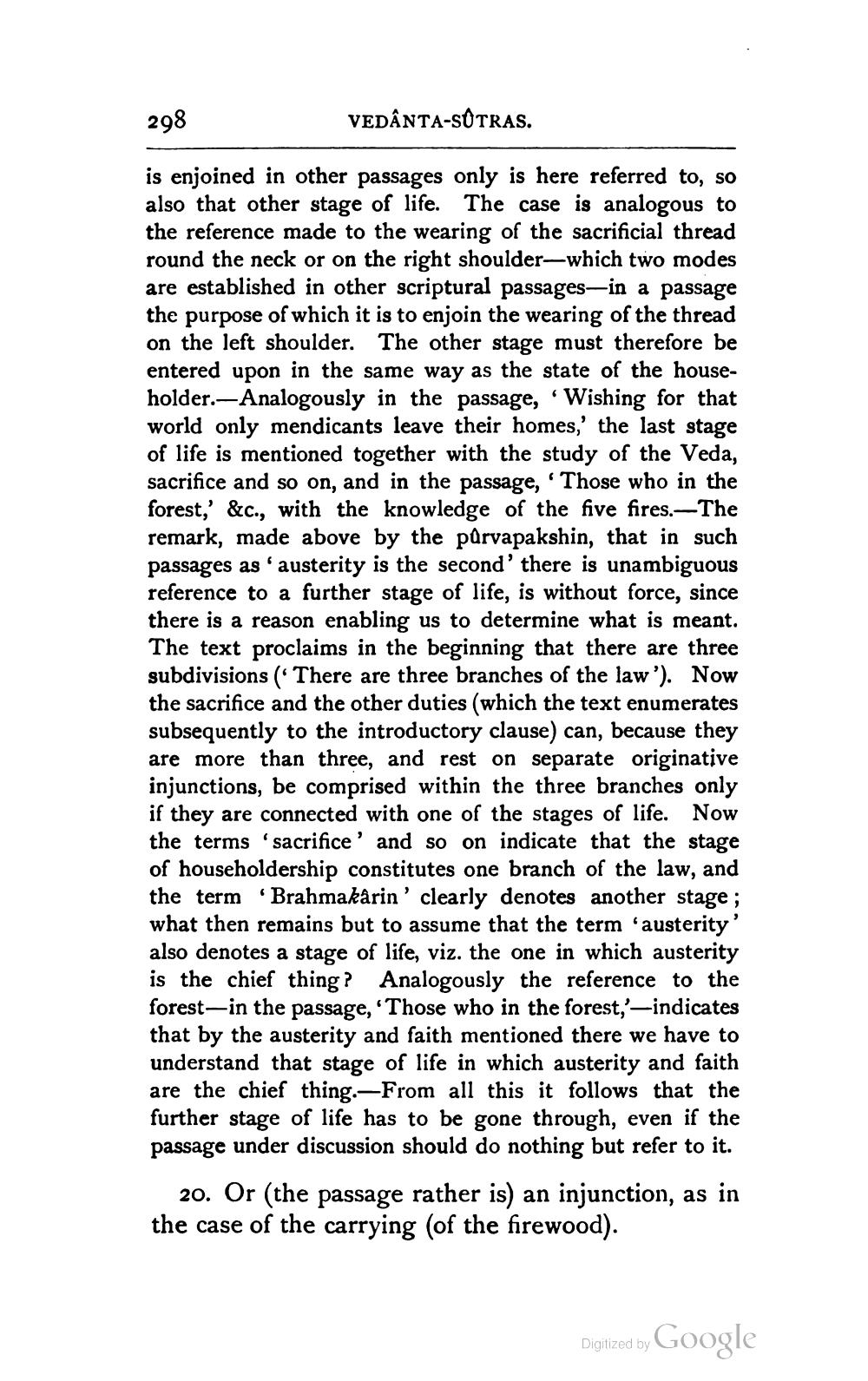________________
298
VEDÂNTA-SOTRAS.
is enjoined in other passages only is here referred to, so also that other stage of life. The case is analogous to the reference made to the wearing of the sacrificial thread round the neck or on the right shoulder-which two modes are established in other scriptural passages—in a passage the purpose of which it is to enjoin the wearing of the thread on the left shoulder. The other stage must therefore be entered upon in the same way as the state of the householder.—Analogously in the passage, Wishing for that world only mendicants leave their homes,' the last stage of life is mentioned together with the study of the Veda, sacrifice and so on, and in the passage, 'Those who in the forest,' &c., with the knowledge of the five fires.—The remark, made above by the pärvapakshin, that in such passages as austerity is the second' there is unambiguous reference to a further stage of life, is without force, since there is a reason enabling us to determine what is meant. The text proclaims in the beginning that there are three subdivisions (“There are three branches of the law'). Now the sacrifice and the other duties (which the text enumerates subsequently to the introductory clause) can, because they are more than three, and rest on separate originative injunctions, be comprised within the three branches only if they are connected with one of the stages of life. Now the terms 'sacrifice' and so on indicate that the stage of householdership constitutes one branch of the law, and the term 'Brahmakarin' clearly denotes another stage ; what then remains but to assume that the term 'austerity also denotes a stage of life, viz. the one in which austerity is the chief thing? Analogously the reference to the forest—in the passage, 'Those who in the forest,'-indicates that by the austerity and faith mentioned there we have to understand that stage of life in which austerity and faith are the chief thing.–From all this it follows that the further stage of life has to be gone through, even if the passage under discussion should do nothing but refer to it.
20. Or (the passage rather is) an injunction, as in the case of the carrying (of the firewood).
Digitized by
Digitized by Google




